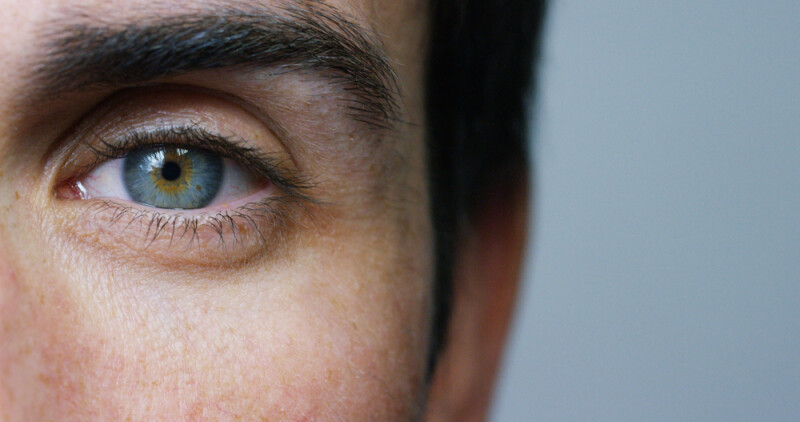BioResource: Providing Highest Quality German Energy Medicines Helps Take Practitioners to “The Next Level”
For the past 10 years, BioResource Inc., located in the beautiful Sonoma wine country of Northern California, has followed its dominant mission with passion and integrity – provide American practitioners with the highest quality, German-made “energy medicines,” as well as superior education and responsive customer service.
Founded by owner Michael Sheehan in 1998, BioResource today serves as the exclusive U.S. distributor for three powerful lines of German biological medicines: PEKANA homeopathic-spagyric medications for drainage, detoxification, regulation and regeneration; SanPharma immune-metabolic remedies that trigger natural killer (NK) cells and support immune function; and Syntrion microbial-based homeopathic tablets and lotions for treatment of allergies, viral infections, circulatory conditions and fungal overgrowth. The medications are FDA-listed and manufactured at GMP-certified facilities.One important key to BioResource’s success was discovering the powerful biological medicines manufactured by PEKANA Naturheimittel of Kisslegg, Germany. The company’s unique homeopathic-spagyric formulas represent some of the finest excretion, regulation and regeneration preparations available today. The remedies are effective, safe, and compatible with biological processes, plus they inherently improve the health of the body’s extracellular matrix while attending to symptoms.Moreover, PEKANA medications act in a profound manner to restore excretion of physical toxins as well as harmful electromagnetic frequencies. The oral drops and topical ointments combine cleansing and regenerative properties, and also help buffer a lifestyle that is stressful biochemically, electromagnetically, socially and spiritually.
In short, PEKANA provocation/excretion medicines “unglue” toxins from the connective tissue matrix, and accomplish their removal through urination, defecation, sweating, respiration or electromagnetic discharge. The regulation medicines restore the ability of an organ or tissue to respond to a host of dynamic changes in the external and internal environment. The regeneration remedies help repair damage by 1) allowing a shift towards anabolic metabolism, 2) supplying a nutrient needed for repair or 3) releasing a toxic load which is causing a catabolic fixation of the metabolism. In Chinese medical terms, regeneration medicines supplement the qi.
“The PEKANA medications have become an integral part of my treatment philosophy, and allowed me to take my naturopathic practice to the next level,” says Chris Fabricius ND, a 1997 graduate of National College of Natural Medicine (NCNM) in Portland, Oregon. “Practitioners need to become aware of the feats of healing made possible by integrating these potent medicines into their therapy regimens.”Creating Unique Spagyric MedicationsFirst developed by the 16th Century Swiss physician Paracelsus, spagyrism represents a form of homeopathy in which both vital healing energy and active substances are extracted from medicinal plants, creating powerful mother tinctures that can be further potentized. Derived from the Greek words spao (separate) and ageiro (unite), the term spagyric means to take something apart and then re-unite it.Paracelsus pointed out that the vital energy of an herb is more important than the plant material itself. Originally, spagyric remedies were created by putrefying parts of wild herbs, then distilling the material in a special device to produce concentrated, high alcohol (70-80%) aromatic solutions. The extracted bulk plant matter was dried and burned to an ash. Finally, this unpurified ash was recombined with the solution. As a result, the finished spagyric essence contained the mineral constituent parts of the plant.This original method had some serious drawbacks. Modern yeasts were unavailable 500 years ago, and therefore the alchemists could not use today’s fermentation techniques. Instead, they were forced to distill the plant materials, which destroyed important ingredients such as alkaloids, vitamins and enzymes. Moreover, the old method simply combined untreated ash with the solution, which meant the final remedies often contained impurities.Modified through the ages, the spagyric process has been greatly refined by PEKANA founder and owner Dr. Peter Beyersdorff, who holds a doctorate in pharmacy. The modern manufacturing method developed by PEKANA is unique in the world today and results in homeopathic-spagyric medications of exceptional quality and efficacy. All remedies are produced at the company’s Kisslegg, Germany facility according to Good Manufacturing Practices (GMP) certification.PEKANA homeopathic-spagyric medications capture the entire living essence of healing plants. Listed in the Homeopathic Pharmacopeia (HAB), the spagyric processing method developed by master pharmacist Dr. Beyersdorff produces medications with both powerful energetic and biochemical effects.The combinations of spagyrically processed herbs, synergistic minerals and homeopathic substances are peerless in their capacity to help the body eliminate toxins and restore proper physiological function.
The process starts by fermenting selected herbs into what is essentially a wine using special yeasts and sugar. Each herb produces its own unique alcohol and other fermentation products. Therefore, the resulting product is alive and composed of a complex blend of metabolic products compatible with the energy (qi) of the plant. In Chinese medicine terms, this step could be looked upon as developing the “yin” of the plant. It is completely different from adding alcohol to an herb to extract its components.Next, the tincture is purified through a series of filtration steps, while the leftover plant residue is burned to an ash. This develops the most “yang” quality of the plant. The ash is placed in a filter tube within a water solution until clear, pure crystals form, indicating that a maximum amount of the minerals have been extracted.In the last step, PEKANA re-unites the mineral filtrate with the tincture. This combination of the fully developed yin with the fully developed yang results in a complete product, the spagyric medicine. All the color and aroma of the remedy forms during this reunification process.Some plants contain naturally occurring antifungals. This will prevent a fermentation from taking place. These plants must be prepared by homeopathic rather than spagyric methods.The spagyric medicine is then made into a homeopathic medicine by hand succussion. Hand succussion is extremely important in that it adds another element of focused human intent into the production process.Finally, up to eight homeopathic-spagyric single ingredients are blended together to form the complete PEKANA remedy. A single ingredient would provide a valuable medicine, but combining eight components creates a remedy that will have a broad spectrum of action in a wide variety of case presentations.PEKANA employees carry out this incredibly sophisticated spagyric process in a family-like work environment. All products are made according to Good Manufacturing Practices (GMP) standards and certification, which insures that the ingredients have not been contaminated by microbes or metal toxins. This certification is difficult to obtain, and the combination of good science and traditional craftsmanship comes through in the finished product.Immune-Metabolic Remedies Fight Infections, Reduce Inflammation, Promote Proper CirculationBioResource also distributes the SanPharma immune-metabolic remedies, and the incredible new Syntrion microbial-based homeopathics that were developed following lengthy human cell line research.For many years, immune modulation therapy has been used to help patients fight acute and chronic illnesses. Primary goals of this therapy are to 1) enhance overall immunological reactivity in case of suppression and 2) balance an overactive, excessive immune response to restore healthy normal function.Scientific articles published in peer-reviewed journals demonstrated that the effects of a modern lifestyle have significantly impacted the human immune system, making it more sensitive than in the past. As a result, SanPharma of Dohren, Germany took a different approach in 1999 toward immune system modulation, introducing microbial therapy derived from highly dilute metabolic products of fungi and bacteriaA breakthrough scientific study has shown conclusively that the SanPharma immune-metabolic fungal remedies work to fight infections by activating natural killer (NK) cells. The study was conducted by Natural Immune Systems Inc. in Klamath Falls, Oregon, a private contract research lab specializing in assessment of the effects of natural products on the human immune system.According to chief immunologist and project director Dr. Gitte Jensen, the highly dilute fungal metabolites specifically activated human CD3-CD56+NK cells in vitro, as shown by the induction of the CD69 marker on up to 50% of NK cells after 18 hours culture with metabolites. Study results showed that SanPharma medications did not cause inflammatory reactions, such as induction of COX-2 enzymes.At Syntrion in Calw, Germany, president Ronald Ullmann – a biochemist and former scientist at the prestigious Max Planck Institute – conducted research into the possibilities of microbial-based homeopathic remedies. His focus involved studying the effects of specific metabolites from selected fungal organisms on various human cell lines including immune system cells. Ullmann developed a way of harvesting specific microbial metabolites, and preparing specific homeopathic preparations of these materials in 4X potencies according to Samuel Hahnemann’s classical methods. The result is the new Syntrion line of microbial-based remedies available in the form of tablets and lotions.BioResource currently offers Syntrion SyAllgen for treatment of allergies and inflammation; SyCircue for circulatory conditions, including glaucoma; SyImmune to treat viral infections, such as herpes; SyRegule for mycotic infections; SyInfect for colds and flu; SyGest for digestive function; and the mineral supplement SyCol for intestinal detoxification. A lotion called Eira that Syntrion is developing to reduce fine lines and wrinkles and prevent premature aging of the skin will also be introduced later this year.




















SHARE